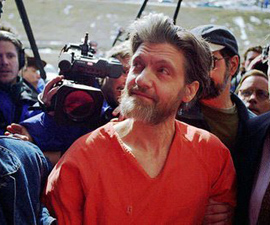See
the two commercials for the iPhone 4S: one with Samuel L. Jackson and
the other with a "Zooey Deschanel". Note the repartee between actor and
phone. What are they selling?
Most immediately, they are selling Command. Command requires a commander, someone who
controls, who navigates, who regulates; in this case, the phone owner.
Command also requires the attention of another, someone willing to take
as her will the will of the commander; she is the audience--in this case, the phone.
But what need does Command satisfy? What common desire are the marketers exploiting?
 We're buying the license to indulge our own personality. To indulge, to express the self to the machine for the benefit of the self. Notice how the characters run a commentary, as if entertaining the phone; but really they are entertaining themselves.
We're buying the license to indulge our own personality. To indulge, to express the self to the machine for the benefit of the self. Notice how the characters run a commentary, as if entertaining the phone; but really they are entertaining themselves.
When
we narrate for and "interact" with Siri, we can act obnoxious or cute,
voice whatever witticism, drivel, passing thought and fancy that would
otherwise shrivel and die as things do when they are unfit for survival.
But now such behavior is legitimized because now you have a (captive)
audience, which, in your mind, makes you a star, a sovereign without territory, holding
court with your first and only servant.
But that is the illusion. What is the actual effect?
Man,
obliterated again and again by technologies since the industrialized
age, seeks yet again to actualize himself through more technology, this
time through the validation that comes with getting recognized by the
machine--the machine that consumes him.
He
doesn't speak to a person through the phone; he speaks to the phone,
and the phone answers him. But it answers not the way a patient parent answers
her insufferable child. Rather, he merely hears the mechanized echo of his own voice and mistakes it for contact. And rather than grow up, he grows even more
dependent until he can't function without it. He is obliterated in his
discourse with the machine that tolerates him, for, in this discourse, no
one is learning about him, growing to like to him (or hate him),
getting used to him, making him more compassionate or better or more
patient--indeed, probably the opposite is true. He regresses into
infancy.
But now he is old.
Notes:
- I don't know who a "Zooey Deschanel" is but judging by an images search it's a professional face maker.



















